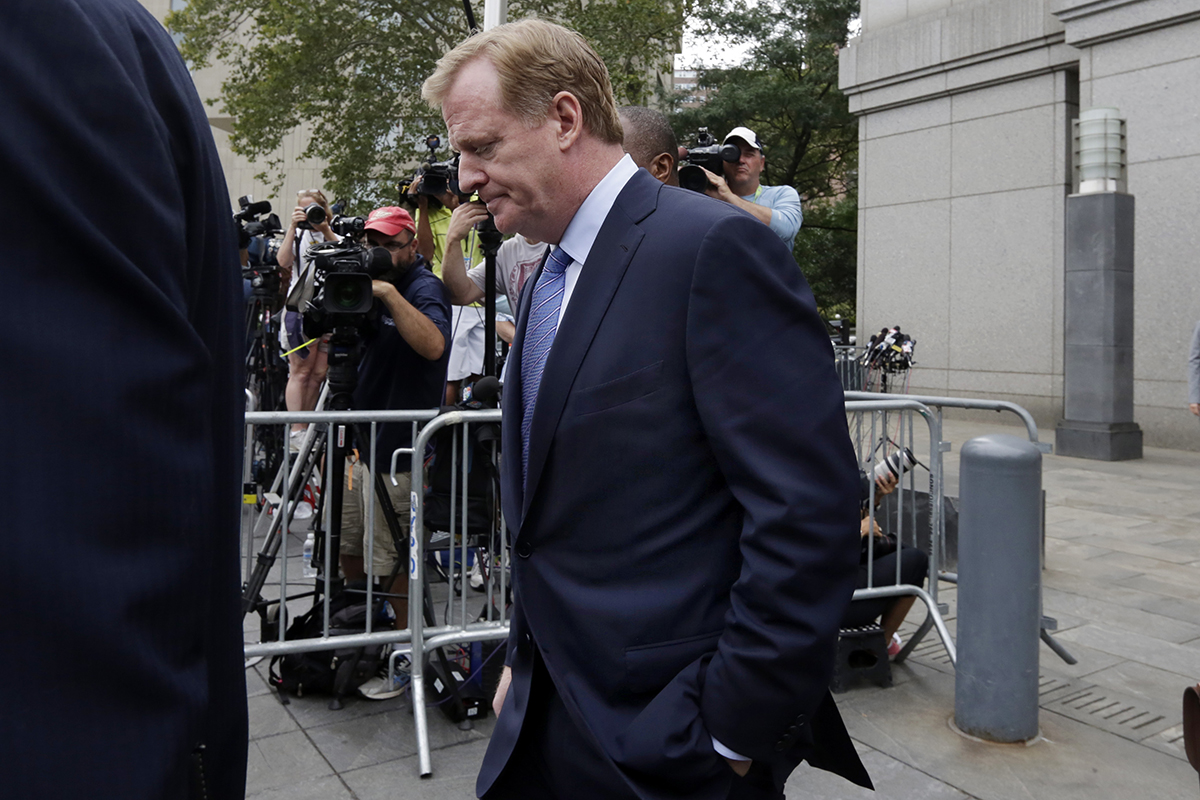NFL Commissioner Roger Goodell Might Lose Disciplinary Powers

Photo via AP
Somewhere along the line, the interminable Deflategate saga mutated from a futile investigation into whether Tom Brady deflated footballs into a full-scale battle over NFL Commissioner Roger Goodell’s authority. Throughout the last seven months, the NFL and NFL Players’ Association have squabbled twice in federal court over whether Goodell can levy a four-game suspension on Brady based upon dubious evidence. The NFLPA says Goodell must abide by a fair arbitration process, whereas the league says the collective bargaining agreement grants the commissioner unilateral control in all disciplinary matters.
But it appears as if all of this litigation may be for naught. The Wall Street Journal reports the NFL and NFLPA are moving closer towards a deal that would strip Goodell of his disciplinary power and hand it over to neutral arbitrators. Any agreement would likely come with the precondition that the league settle its ongoing cases against Brady and Minnesota Vikings running back Adrian Peterson, who’s currently mired in a legal battle against the league over his 2014 suspension for allegedly abusing his son.
“It’s a player decision with what they want to do, but I can’t imagine there is any appetite to agree with any proposal that doesn’t wrap up all the litigation,” NFL Players’ Association head DeMaurice Smith told the WSJ. “We can either continue to litigate or reach a collectively bargained conclusion.”
In an interview with ESPN Radio’s Mike & Mike last September, Goodell himself acknowledged there may be a need to overhaul the league’s disciplinary system, calling the current setup “extremely time-consuming.”
Last August, the MMQB’s Peter King reported some owners have encouraged Goodell to look into altering the way he handles discipline. Unsurprisingly, one of the loudest advocates for change has been Patriots president Jonathan Kraft, who told 98.5 “The Sports Hub” over the summer that he thinks the league office needs to be less involved in disciplinary matters.
Despite the apparent momentum for the NFL and the players’ association to strike a deal, a couple of obstacles remain. First and foremost, the league will likely ask for a significant concession from the players if Goodell is going to surrender his right to dole out punishment. Considering only a small percentage of players have been affected by the current disciplinary system, the NFLPA may not be willing to give up gains that benefit the majority of its members. When the current CBA expires in 2020, there’s already likely to be a battle over whether players should receive a larger percentage of league revenue. Haggling over Goodell’s rule of law would further complicate matters.
Ultimately, though, Goodell answers to the league’s 32 owners. If there’s a demand for him to no longer be the judge, jury and executioner, he’ll probably try to adhere to those wishes.
Given that the losing side in the Brady case will almost certainly appeal the second circuit’s decision, any changes to the league’s disciplinary policy will likely have a major impact on his case.

